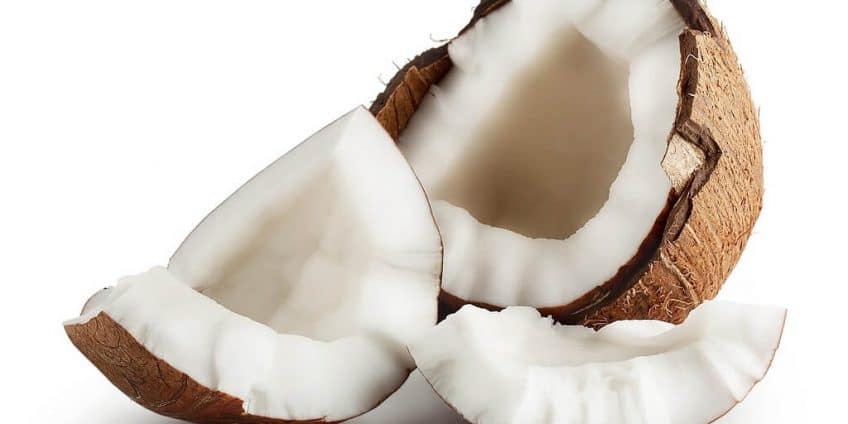Scroll to Recipes with Coconut / नारियल as ingredient
Coconut is a fruit and as well as the nut of the coconut palm tree. Since ancient times, it has been grown in the tropical climate and is the only known living species of the genus Cocos. The brown, fibrous husks conceal the meat inside.
Indonesia grows the majority of coconut worldwide with 18.6 million tonnes of it, followed by the Philippines and India. This food might be more famous for its oil, milk, and water, but it doesn’t mean that the flesh part of it is not healthy. The flesh of the fruit does provide just as many health benefits.
Every part of it is of use to humans. Therefore, in Sanskrit, it is termed as kalpa vriksha, which means “the tree which provides all the necessities of life.”
Commonly Known as
| Language | Name | Written as |
|---|---|---|
| Hindi | naariyal | नारियल |
| Arabic | jawzat alhind | جوزة الهند |
| Bengali | Nārikēla | নারিকেল |
| Gujarati | Nāḷiyēra | નાળિયેર |
| Kannada | Teṅgina kāyi | ತೆಂಗಿನ ಕಾಯಿ |
| Malayalam | nāḷikēraṁ | നാളികേരം |
| Marathi | Nāraḷa | नारळ |
| Punjabi | Nārī’ala | ਨਾਰੀਅਲ |
| Tamil | Tēṅkāy | தேங்காய் |
| Telugu | Kobbari | కొబ్బరి |
| Urdu | naariyal | ناریل |
Nutritional Profile of Coconut
Nutritional profile per 100 gms
- Calories: 354
- Protein: 3.3g
- Carbohydrate: 15g
- Fiber: 9g
- Fat: 33g
- Sodium: 20mg
- Potassium: 356mg
Source: USDA & Google
Benefits Of Coconut
May Provide Heart Health
They help in lowering or controlling cholesterol levels in our body. It results in a decrease in belly fat and, in turn, ensures heart health.
Source: PubmedCentral
Promotes Blood Sugar Control
They are low in carbs and rich in fiber and fat. Both of these may help in stabilizing the blood sugar level of your body. One rat study found that it had antidiabetic effects.
Source: PubmedCentral
Antioxidants
Antioxidants are compounds that protect from free radicals and cells getting damaged. It has such antioxidant called polyphenol that can also reduce your disease risk
Source: International Journal of Food Properties
Highly Nutritious
It is providing fat rather than carbs. It is rich in protein, essential minerals, and small amounts of B vitamins. They are exceptionally high in manganese, which is very important for bone health and the metabolism of carbohydrates, proteins, and cholesterol.
Source: PubmedCentral
Side Effects Of Coconut
They are likely to be more in calories due to it being more in fat. Moreover, consuming it may have some allergies, though it is less likely to happen.
Research lacks about coconut and cholesterol. Having it in moderation should be fine, but you may need to consult with some healthcare faculty if you take into more amounts.
Frequently Asked Questions
Is it a fruit?
It is all three, aka a seed, a fruit, and a nut.
Can we eat this raw?
There is ripe and raw coconut. Raw coconut is green in color. However, one has to peel the it and drink it’s water when it is in raw form. With time when it rips, one can eat it raw. You can eat it as a snack or can use it with other dishes.
What happens when we have too much of it?
Overeating this increases cholesterol levels. Various studies have been conducted, and it is found that people eating more coconut have higher cholesterol levels than those who eat less.
Can one drink its water at night?
There is no definite time to drink its water. You can enjoy it during the day as well as even at night.

